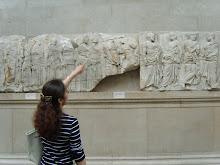(Making a Story with the Given Words)
hypocrite / hypocritical,
anxious / anxiety,
revenge / revengeful,
dread / dreadful,
blunder,
fragile,
reject / rejected,
catastrophe,
recuperate,
assert / assertive,
sceptical,
modest / modesty,
impulse / impulsive,
commitment / committed,
frugal / stingy,
sophisticated / sophistication
---------------------------------------
“Moderate Sophistication of Jason Hatcher’s Story”
Jason Hatcher is a well–educated young man of rich family. He is modest and sophisticated. His family’s richness is hereditary in a certain sense, but it is his father’s frugality to have kept the wealth unimpaired. Naturally, father Hatcher did not spend money lavishly on his son, even though he loved his son very much. Mr. Hatcher thought that money was the last means to show his commitment to his son, and wanted Jason to know exactly how and on what to use money.
Raising a child in one’s own way does not always meet his/her expectations. Parents’ anxiety about their children occasionally drives themselves to discipline the children dreadfully for their misbehaviour. It would be one of the causes for which the parents’ love is often misunderstood by their children. The Hatchers could not be an exception. In early years, Jason was sceptical about his father’s attitude. Even Mr. Hatcher’s carefulness looked fragile in his son’s eyes.
When he was an adolescent, Jason was full-blooded and sometimes impulsive. At school, the boy was popular among the girls of his age and also a leader of the boys, because he was smart, handsome, and active. As the leader of his aged group, Jason seemed that he could go through fire and water for his group’s sake.
One day, a friend of Jason had been battered by naughty boys of a neighbouring school without any cause. Jason and his guys were furious, and their revengeful indignation spread to fighting in groups. The boys of the two schools were confronted with each other at a snack bar, so quarrels exploded into hand-to-hand struggles. Many boys were hurt and lots of implements of the bar were damaged. The fight was ended by the police. As for the bar manager, it was like a small catastrophe.
Leader Jason was helplessly imputed to the prime mover, so the policeman sneered at Jason, “You committed a terrible blunder!” Jason’s father was called by the police as well as by the school. Mr. Hatcher rejected to appeal for forgiving management for his son, however. He said to Jason, “You are responsible for your behaviour, and deserved punishment. Reflect yourself for a few days and do proper things to be needed. I cannot help you because I love you.” Thus Jason had to stay in the police cell three days more than other boys, after that, had to work at the bar--the fighting place-- after school, without pay or time limit, as a kind of payback.
The more Jason thought of the father’s reaction, the more he became distressed. The angry son spoke to his father in an assertive tone, “Dad, your love is hypocritical. The fact is that you are too stingy to be generous with your own son. You’re just a hypocrite. I don’t want to hear you anymore. I’ll become richer than you, and revenge your meanness.
As penitence of the commitment, Jason sincerely served at the bar. He learned the value of responsibility, prudence, modesty, perseverance, and labour, but it was not easy to recuperate the affection for his cold-hearted father. Six months later, the bar manager called Jason and told him, “You have worked so hard till now. I assert you are a good boy. Now you don’t have to serve here anymore.” Then he paid Jason for six months’ work. In the end Jason found that his father already compensated the bar for the loss and arranged all this experience for him, his loving child. Jason realized that his father’s love was so deep that he could not imagine its depth.
Now Jason is grown up, frugal but generous like his father, and makes a wholesome gentleman.
Brit… (13th August, 2009)

